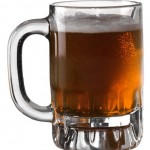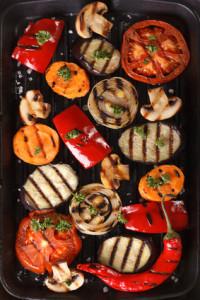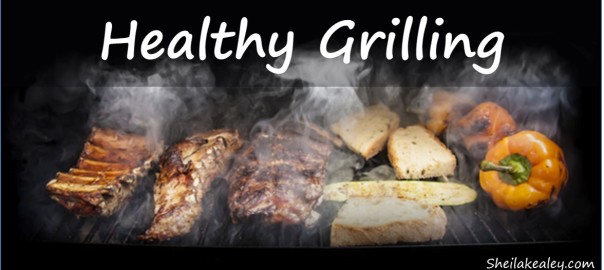Summer is a great time to take cooking outdoors to the grill – it keeps your kitchen cool and creates a relaxed atmosphere that makes dining so pleasurable. And somehow, food cooked outdoors always tastes extra delicious!
Grilling can be a healthful way to cook because fat drips away during cooking. But unfortunately, grilling might pose health concerns: cooking “muscle meats” (red meats, poultry, game, and fish) at high temperatures creates cancer-causing compounds called heterocyclic amines (HCAs). Also, fat that drips onto hot coals or stones produces other cancer-causing compounds called polycyclic aromatic hydrocarbons (PAHs). As food cooks on the grill, fire flare-ups and smoke carry the PAHs onto the food. PAHs can also form directly on charred foods. Laboratory studies have shown that HCAs and PAHs can change DNA in a way that may increase cancer risk; studies in humans haven’t established a definite link, but experts urge caution.
If you love the flavor and simplicity of grilled foods, don’t despair! Here are some simple tips and strategies to help you minimize exposure to harmful compounds and keep your grilled dishes healthy.
4 Tips for Healthy Grilling
1. Use Marinades

Marinades are a great way to boost flavor, tenderize, and keep foods moist during grilling. Also, marinating meats before grilling significantly reduces the amount of HCAs. Make your own marinade, or try one of the great variety of flavors at your grocery store. For food safety, always marinate foods in the refrigerator. One study found that marinating meat in beer reduces potential cancer-causing substances. You’ll find some great marinade recipes here.
Spices in marinades are another delicious way to reduce your exposure to cancer-causing substances. A recent study found that rosemary added to ground beef patties reduced HCA formation dramatically. Researchers attribute the benefits to antioxidants found in rosemary.
Garlic, onion and lemon juice are more tasty marinade ingredients that reduce the formation of harmful substances.
2. Reduce Grill Time
Reducing grill time can reduce exposure to HCAs and PHAs. You can reduce direct grill time by (1) keeping meat portions small, so they need only a brief time on the grill; (2) precooking meats in oven or microwave, then finishing briefly on the grill for flavor; and (3) not grilling frozen meats since they take longer to cook, and the inside remains frozen while the outside chars.
3. Avoid Charring Meat and Flare-Ups
Avoid charring meat and flare-ups by cooking meat over a low flame. You can also limit flare ups (caused by juices dripping into the flames or coals) by not placing meats directly over coals, covering the grill with punctured aluminum foil, and keeping a water spray bottle on hand (to control flare-ups).
 4. Vary the Grill Menu
4. Vary the Grill Menu
Instead of large portions of grilled meats, fill your plate with colourful vegetables or salads, and eat less meat. Choose lean cuts of meat more often, well-trimmed of fat (less fat means less dripping, and less PAHs), and limit higher fat meats like ribs or sausage. If you predominantly grill meats, make room on the grill for some plant-based options . . .the American Institute for Cancer Research has some great tips for grilling vegetables.
Share This:
